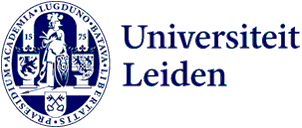Miranda Boone in NRC: 'Leave for prisoners is essential'
Tightened rules are preventing prisoners from taking leave, even though this would help with their reintegration.

Prisoners are elegible for leave in the final phase of their detention period and it helps to prepare them for returning to society. In 2021, the rules on leave were tightened after Michael P. was able to committ the murder of Anne Faber while staying in a forensic clinic. The purpose of tightening the rules was to form a clearer picture of whether perpetrators of serious violent and sex crimes who are placed in a forensic clinic are ready to be given leave.
But according to the Dutch Custodial Institutions Agency, the extra safeguards were 'unintentionally formulated too broadly', so that the stricter rules apply to all detainees who have committed serious crimes of vice and violence - and not just to those who have been placed in a forensic clinic. This has resulted in long waiting times and delays in the reintegration process.
Leave, however, is 'essential' in reducing recidivism, says Miranda Boone, Professor of Criminology and Comparative Penology, in Dutch newspaper NRC. 'While on leave, prisoners can improve the relationships with their family or children, apply for a job, or look for accommodation.'
Read the full article (in Dutch)
